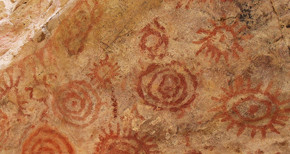Society for American Archaeology Condemns European Auctions of Native American Cultural Heritage
WASHINGTON, D.C. —The Society for American Archaeology (SAA) condemns the continued auction of objects of Native American cultural heritage by EVE (Estimations Ventes aux Enchères), and calls upon that firm to immediately cease these harmful transactions.
SAA is an international organization that, since its founding in 1934, has been dedicated to the research about and interpretation and protection of the archaeological heritage of the Americas. With more than 7,200 members, SAA represents professional archaeologists in colleges and universities, museums, government agencies, and the private sector. SAA has members in all 50 states as well as more than 60 nations around the world.
In 2015, SAA and other organizations repeatedly requested that the EVE and Drouot auction companies cancel their planned sales of Native American Kachina dolls, ceremonial masks, and sculptures. Those requests were ignored, and on October 4, 2018, EVE held another auction of tribal objects. It is our understanding that additional auctions are scheduled in the coming months.
Our objections to these sales remain. SAA has long opposed the buying and selling of objects out of archaeological context. As noted in our Principles of Archaeological Ethics, these actions are “…contributing to the destruction of the archaeological record on the American continents and around the world. The commercialization of archaeological objects—their use as commodities to be exploited for personal enjoyment or profit—results in the destruction of archaeological sites and of contextual information that is essential to understanding the archaeological record.”
In addition, while the procurement of many of the tribal items currently in European collections did not break state or federal law at the time, it was certainly a violation of the laws and customs of the numerous tribes whose items will be offered for sale in the coming weeks. The 19th and first half of the 20th centuries—the primary period of collecting activity by Europeans in the U.S.—was a time of extreme poverty for Native Americans. It is extremely likely that any sales undertaken at that time were made under conditions of duress. The articles in question could be sacred objects and objects of cultural patrimony. The auctions’ scattering of the collection to potential buyers around the world would further degrade the irreplaceable information and context that the items possess, in addition to contributing to the erosion of the concerned tribes’ cultural and spiritual traditions. European governments and auction houses have recognized ethical issues involved with collections obtained under duress, given experiences on the continent during and after World War II; this empathy now needs to be extended to the rest of the world.
U.S. law does not explicitly prohibit the export of illegally procured Native American cultural items, although SAA and other groups are promoting legislation in the current Congress that would do just that. In the meantime, the voluntary cancellation of any further sales would be a critical first step toward preserving these collections and beginning discussions for their eventual repatriation to their tribes of origin.



